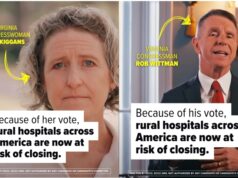Each day women across this country continue to battle issues of inequality. The sad fact is that women still make seventy-four cents on the dollar in comparison to us men. By remaining stagnant on this issue, by simply brushing it aside, keeping it in the back of our minds, we remain committed to an all too familiar phrase, “separate, but equal.”
The Equal Rights Amendment (ERA), passed by Congress in 1972, would have become the 27th Amendment to the Constitution if three-fourths of the states had ratified it by June 30, 1982. However, that date passed with only 35 of the necessary 38 state ratifications. Instead, the 27th Amendment is the “Madison Amendment,” concerning Congressional pay raises, which went to the states for ratification in 1789 and reached the three-fourths goal in 1992.
The fact that a 203-year ratification period was accepted as valid has led ERA supporters to propose that Congress has the power to maintain the legal viability of the ERA and the existing 35 state ratifications. If so, only three more state ratifications would be needed to make the ERA part of the Constitution. Legal analysis supporting this strategy was developed in 1995 by Allison Held, Sheryl Herndon and Danielle Stager, then third-year law students at the T. C. Williams School of Law in Richmond, VA. Their article, “Why the ERA Remains Legally Viable and Properly Before the States,” was published in the Spring 1997 issue of William & Mary Journal of Women and the Law.
The Commonwealth of Virginia remains one of the fifteen states to yet ratify the ERA. This should be an embarrassing fact for all of us Virginians. I ask you to join with me, in asking our elected leaders to place the ERA back on the state’s agenda, which if ratified by Virginia would place it back onto the national agenda as well. We would be just two states away from finishing the job of amending the constitution.
The Equal Rights Amendment isn’t about politicians scoring some political points. It’s about the girl who wants equal opportunity in school. It’s about the single mother who can’t get a mortgage or a small business loan. It’s about the woman who faces harassment in her place of work and violence in her home. The ERA is not going to solve all of these problems, but it will help.
Alice Paul wrote the original amendment way back in 1923, just after women had won the right to vote. Many detractors had told her that the battle for equality was over, but Alice Paul fought onward. She’d like to quote an adage she had learned from her mother, a farmer. “When you put your hand to the plow, you can’t put it down until you get to the end of the row.”
And so, like Alice Paul and some many others who have come after her, we fight on. We take one step forward, then another and another. We shall keep our hands to the plow.
In the Declaration of Independence, “The first truth to be held as self-evident is that all men are created equal,” since women didn’t win the right to vote until about a century and a half later, I’m afraid we have to assume that they did mean “men.”
Now, we can’t amend the Declaration of Independence, but we can and must amend the constitution to make absolutely sure that women have all of the equal rights and privileges, as do men.
Sign the petition below to push Virginia to finally ratify the ERA!












